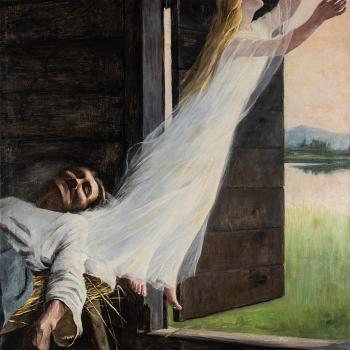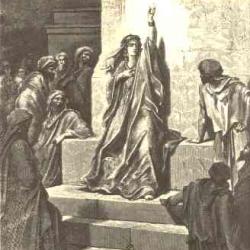Editors' Note: This article is part of the Patheos Public Square on the Future of Faith in America: Catholicism. Read other perspectives here.
Having spent most of the past three years since the publication of Forming Intentional Disciples on the road talking to tens of thousands of Catholic, I have seen some remarkable changes.
1) The majority of Catholic leaders are now grappling with the realities that the new Pew U.S. Religious Landscape Survey reveals, although the intensity of their concern is directly related to how things are playing out in their own region. Many highly engaged Catholics are coming to terms with a new awareness that cultural Catholicism alone is not capable of withstanding the tide of post-modernity in the U.S. The Pew Study gives us an unobstructed view of reality: in 21st-century America, mission is the only maintenance. American Catholics will either be intentional Catholics or missing in action.
2) Many are wrestling with the practical implications of the fact that the majority of our baptized population — even our leadership — are not yet disciples. It is telling that the 2007 Pew U.S. Religious Landscape Survey found that only 60 percent of Catholic adults believed in a personal God.
3) Serious conversation is taking place at leadership levels all over the U.S. about conscious discipleship as the center of the Catholic faith. There is a dramatic growth in the use of the papal, magisterial, and scriptural language of relationship, personal faith, conversion, and discipleship.
4) Leaders are asking for the first time, "Am I a disciple?" A number of highly engaged Catholics have told me that they literally did not know that they could have a personal relationship with God. Many are beginning to experience significant personal conversion.
5) Creative initiatives to foster intentional discipleship are beginning in a number of parishes and dioceses. Pastors and leaders are beginning to view their parishes as missionary communities of disciples rather than maintenance institutions for those who are already Catholic. Whole dioceses are well on their way to their goal of making conscious discipleship and disciple-making the center of all ministry.
6) In many areas, we're seeing the emergence of a new kind of evangelizing pastoral leader who is focused first and foremost upon actively fostering the discipleship of all the baptized. (The 4,400 members of our very busy Forming Intentional Disciples Facebook Forum have come from across the leadership spectrum.)
7) Serious formation in practical evangelization for seminarians and lay leaders is beginning to be offered around the country, formation that prepares ecclesial leaders who are both disciples themselves and can effectively call others to discipleship.
What will happen in the next five years?
The 2-3 million American Catholics who are highly involved in addition to attending Mass — the core who make everything happen at every level of the Church's life — will largely determine that. Making disciples of millions of baptized Catholics is very much like raising a really large family of children. You have to be in it for the long haul because at year five, you are still in the early stages! But if "core" Catholics at all levels commit together to do all they can to call the baptized in their community to follow Jesus as his disciple in the midst of his Church, dramatic, positive changes with enormous long term implications are possible.
We call it the "double in five" challenge. Dozens of U.S. parishes have already seen the tremendous fruit that emerges when the parish leaders set out to double the number of intentional disciples in their communities in five years. What if 1,000 U.S. parishes set out to double the number of disciples in their communities in the next five years?
There is nothing magical about the numbers, but there is something profoundly transforming about pursuing the goal. Having the conscious goal of making disciples and systematically going after it changes parish leadership, culture, and practice. Most critically, the lives of many thousands of Catholics change in amazing ways. What God will do through the fruit of their personal "yes" will change Catholicism's future.
Catholics have been here before.
Four hundred years ago, a great Catholic revival emerged in France in the midst of circumstances vastly grimmer than our own. Catholics of that generation had lived through repeated religious civil wars in which millions died. Finally, two generations after the Council of Trent, the exhausted survivors looked about them and realized that they needed to do something profoundly different. The renewal involved tens of thousands of French Catholics but historians of the period now refer to them collectively as the "Generation of Saints." One of their great secrets was that they were disciples together. They collaborated in their common mission across categories like bishop, priest, religious, and laity, man or woman, poor or rich, working class or upper class, educated or not.




